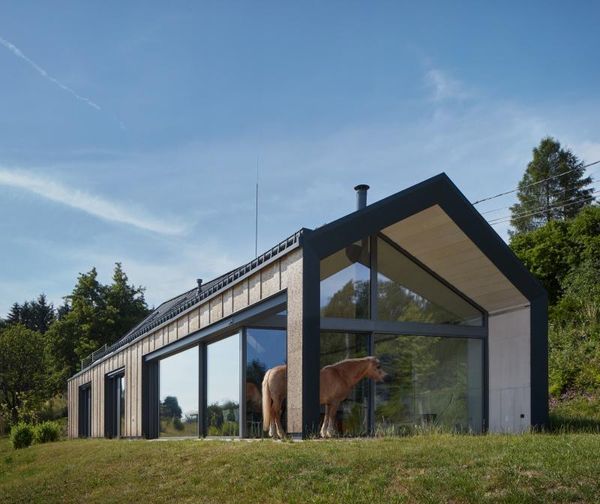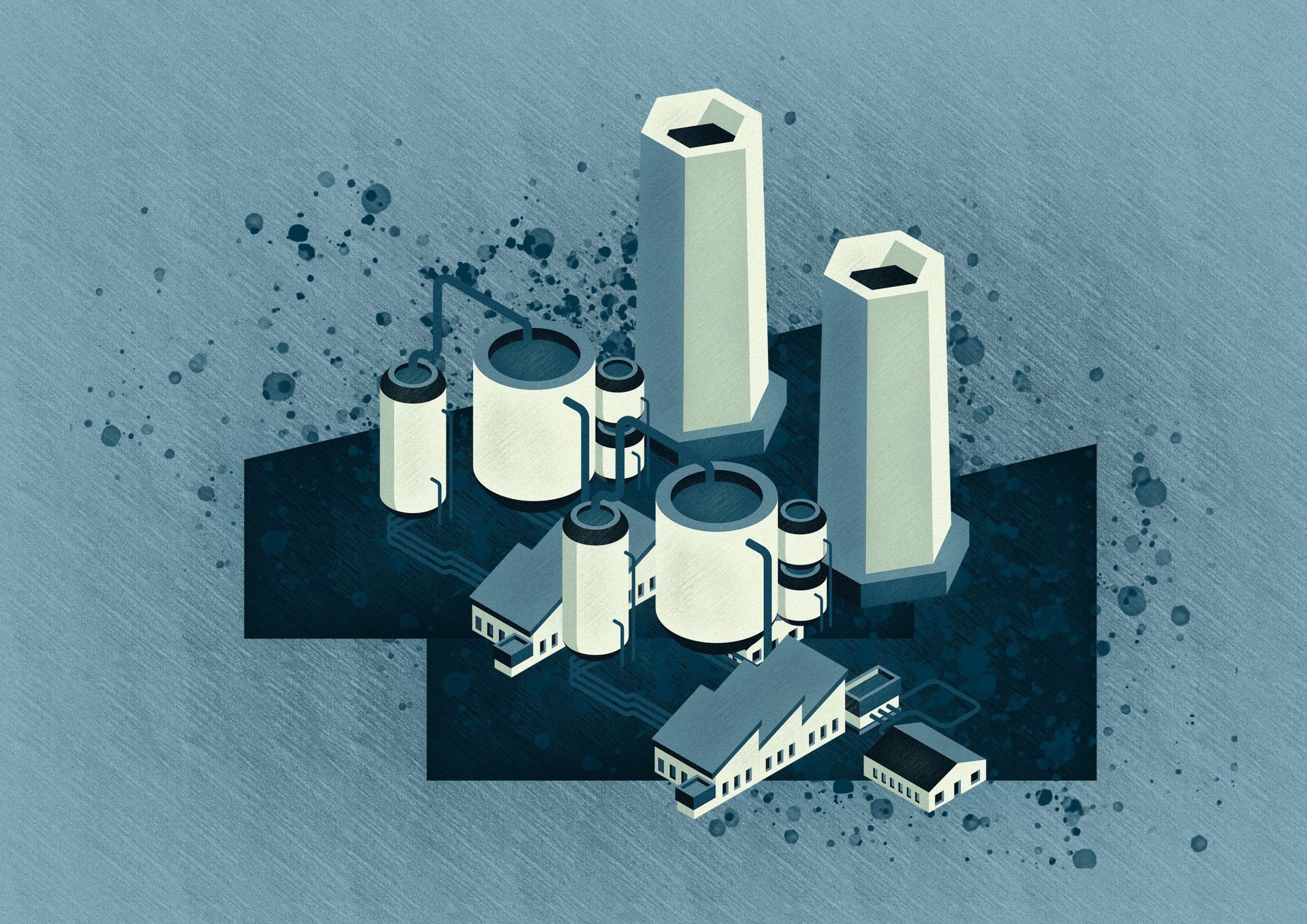In the context of the war and the escalating crisis, we usually talk about the problems of the past and the difficulties and challenges of the future. But what will be the way out of the crisis for Germany, the Achilles’ heel of the EU since the war broke out?
At the MCC Budapest Summit, an international conference organized by the Mathias Corvinus Collegium (MCC), we visited a panel on how to look to the future and what the possible outcomes of the crisis are. The panelists look at the world through German and Austrian lenses, but their insights are useful for everyone. Conference coverage from Hype&Hyper.
To look to the future, we need to understand how we ended up in the situation we are in. Dr. Marie-Theres Thiell, Managing Director of DialogUngarn and former CEO of ELMŰ-ÉMÁSZ, sees the German federal election as a turning point. The era of Angela Merkel is over; her chancellorship is replaced by a three-party coalition. The new government was welcomed by society, which had long been waiting for political change. But within a few months, shortly after their victory, they had to face the consequences of the war. Managing a crisis with the consensus of three parties is difficult, and governing a country in such an onerous wartime period requires a lot of experience. Thiell believes the drop in household incomes and energy shortages can lead to a more severe crisis. The propensity to consume is low as people fear the consequences of economic depression.
We can know that we will hear a good discussion if the panelists disagree since, in this case, we can get a more nuanced picture of certain issues. We were lucky as Prof. Dr. Fritz Söllner, Head of Department at the Technical University of Ilmenau (Technische Universität Ilmenau), immediately said he disagreed. In his opinion, politics has not changed after the elections but instead just given a new look. He believes there are two main reasons behind the current situation. The first is the inflation-generating action of the European Central Bank, the excessive issuance of money. The second is the energy supply crisis. He attributes the latter to the sanctions imposed by the West and the Russian countermeasures. According to Söllner, the biggest problem is the sudden increase in energy prices. Moreover, he deems that the eurozone countries are incapable of acting against inflation, as it can only be controlled by the European Central Bank. The energy crisis is caused by a supply shortage, but he believes politicians are not trying to solve this issue. They are just putting out fires to solve the consequences, for example, by cutting taxes, but they ignore the root cause. These steps do not solve the problem of simply not having enough energy. There are two ways out of the crisis: either we lift the sanctions or make them even harsher. In addition, gas should not be used to generate electricity, coal and nuclear power plants should be reopened, and further export growth is needed to deal with the crisis adequately.

Dr. Thomas Narbeshuber, BASF’s Vice President for Central and South East Europe, wanted to start by clarifying a few things. He believes people are under the false illusion that the current crisis will suddenly disappear after the war. But the reality is the opposite: the crisis will not disappear at all. Europe imports 50 percent of its energy, while China imports 25 percent, and the US is entirely self-sufficient. Another problem Europe has run into is the overdependence on supply chains. We must rely on local and regional production and consumption in the future because a shock like the COVID-19 pandemic can bring global supply chains to their knees at any time. In addition, Europe is also facing a shortage of workers, particularly noticeable in the hospitality sector after the coronavirus pandemic. So, there are many challenges ahead, but Narbeshuber remains optimistic. He has been in the industry for 30 years and has been through 7 crises from which they could always recover. Narbeshuber believes we need to enhance collaboration and explore the opportunities given by creative solutions.
Thiell points out that the energy crisis is not only due to a drop in Russian demand. We have long seen the necessity of the green energy transition, and now we are especially depending on implementing this switch as quickly as possible. But this requires science, politics, and the economy to work together. Technology is already available in many cases, but we need investment and common goals for the future.
Söllner explained that the emerging energy crisis resulted from decades-long incorrect policies. It was written even in the Wall Street Journal that Germany has the most botched energy policy in the world due to the closure of coal and nuclear power plants leading to a strong dependency on Russian gas. The Russo-Ukrainian war was just the last straw.
Narbeshuber’s opinion on energy is that in the medium term, we need to be open to almost all technologies, but in the long term, not necessarily, as sustainability is essential for the future of the Earth and human society. Without it, our planet would become uninhabitable. Our children will lack the raw materials they would need for a fulfilling life. Today we must seize every opportunity, we need to use liquefied natural gas (LNG) now, but tomorrow we will have to use renewables. And the transition will require integrating the systems of the two energy sources. The chemical industry serves as a good example of this transition. It has a vast energy demand; research suggests that 600 terawatt hours of electricity are needed to decarbonize the entire German chemical industry. This is currently equivalent to Germany’s annual electricity consumption. It sounds dramatic, but if Germans seize all opportunities to save energy if they produce more green energy, and if they make the most of their potential, then they should actually just increase capacity from 600 terawatt hours to 1000. That is a 40% increase, but it would decarbonize the whole German chemical industry.

Thiell responded that we should not rush ahead so quickly. The future can only be dealt with once it is on firm ground. The development of energy networks should be the EU’s priority for the future. Söllner agreed that we need to switch to renewables in the long term. But what does the long term even mean? – he asked. Söllner added that we should not be alarmists as the world will not end tomorrow yet. The priority now is to have a contingency plan to ensure that Germany is not left without energy, whatever happens. He deems that German energy is expensive because the country has two different energy systems, one for renewables and one for non-renewables. According to Söllner, the energy issue should now be approached in an economic, not ideological, way, the costs should be weighed against the gains, and he believes it is enough to make the country carbon neutral by 2050.
Nuclear energy came up several times in the discussion: is there a way out of nuclear energy? Narbeshuber does not see nuclear power as sustainable, but he deems it should not be completely ruled out during the energy transition process. Thiell disagreed; she believes it is inevitable. The last decades have been wasted regarding the transition; being sustainable is no longer a question of technology; the problem is the lack of collaboration and investment. The current crisis may accelerate developments, just as digitalization speeded up during the coronavirus pandemic. Söllner is not pro-nuclear either, but as a physicist, he believes that there are now safe power plants with few by-products, and to rule out possibilities just because of an ideology would be a big mistake. Söllner thinks the Holy Grail of the future is the fusion reactor, which should be invested in as much as possible.
A large part of German society is scared and does not know how to pay utility bills during the winter. Thiell said this winter will remind us how important it is to economize our resources and energy use, as the economy is not always on a positive trajectory. Söllner believes that this crisis does not affect the top 10-20% nor those who live from social safety net benefits as the state provides the necessities to those people. The biggest victim of this situation is the impoverished part of the working class. Therefore, German society is not equally hit; it depends on social class to what extent people directly feel the effects of increased energy prices. Narbeshuber believes Germany’s most crucial challenge for the coming years is to keep the German industry alive. The country is in an overall bad plight, with many factories having to be shut down not due to supply chain disruptions but because it was not worth running them in the present circumstances. The key thing for Germany and Europe as a whole now is to have an independent and viable industry. Europe must be self-sufficient to avoid the many negative external factors which would otherwise affect the continent’s future.
Graphics: Réka Pisla

A fascinating Czech country house—what’s the recipe for success? | Atelier SAD X Iveta Zachariášová

Private reading room with unique solutions










